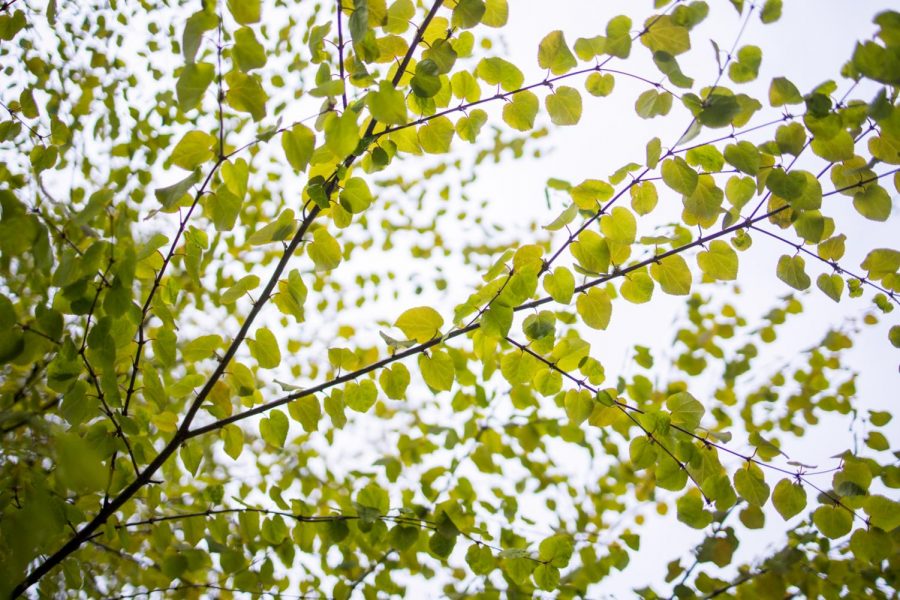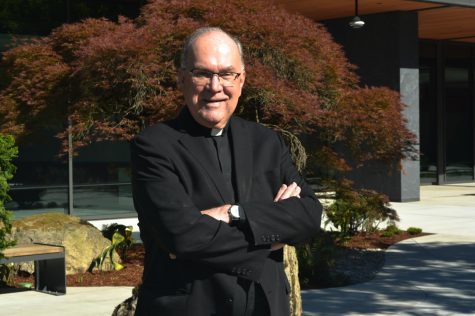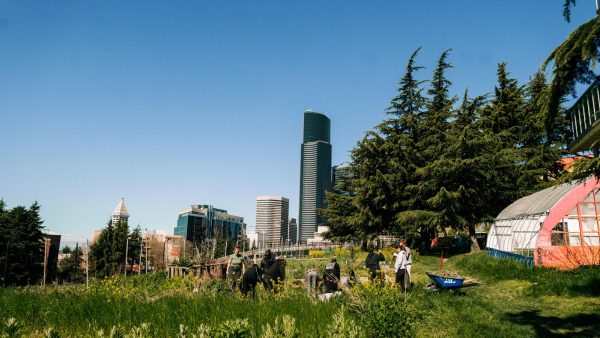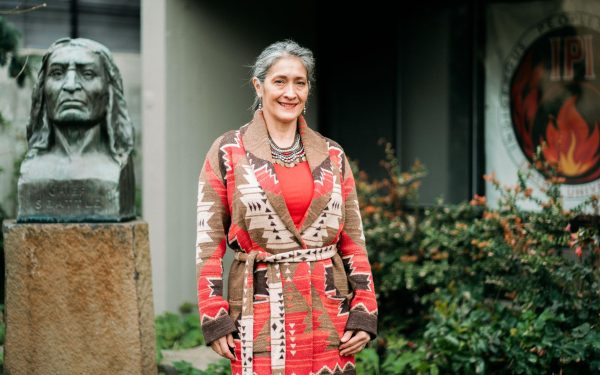Seattle U CEJS Hosts Events in Honor of Earth Month
As the celebration of Earth Day quickly approaches in the month of April, Seattle University’s Center for Environmental Justice and Sustainability (CEJS) has partnered with various campus partners to encourage the Seattle U community to focus on environmental issues.
The Environmental Studies department held a panel discussion April 9 about climate justice, in collaboration with Seattle U’s Reading Redhawks program for the event. A list of readings was provided to anyone interested in attending prior to the event and during the discussion, the panelists referenced the readings and the course of action in climate change within the Biden Administration.
Faculty members from the President’s Committee for Sustainability (PCS), CEJS and the Center for Faculty Development created short presentations April 13, sharing with audience members the ways they have worked to integrate sustainability into courses.
This event was open to Seattle U faculty to better their courses in social, economic and environmental sustainability. Another faculty workshop will be held April 20, focused on integrating sustainability and Ignatian practices into their courses.
In addition to these workshops, Seattle U administration has been brainstorming opportunities for all students to be educated on these topics. Tanya Hayes, the program director of Environmental Studies, elaborated on this effort.
“There is work going on right now on how to incorporate sustainability in the core, which I think is challenging, but important to think about how all students can get exposed to sustainability and how we would look at problems and solutions,” Hayes said.
The CEJS will host its second edition of Earth Talks, April 22. In two sessions, 20 students, faculty and community partners will share short presentations. Each session will conclude with a Q&A with keynote speakers Jamie Margolin and Donna Moodie.
Fourth-year business analytics major, Nick Chang, is one of Earth Talks’ student speakers. Chang will be presenting on transportation and the future of sustainable public transportation during the afternoon session.
Chang’s interest in the environment––specifically public transportation––stems from growing up in Honolulu, a city with bad traffic. He hopes the audience will be inspired to change their own lifestyles after listening to his presentation.
“Typically, when I have the public transit talk with someone, they agree with me to the extent other people should take public transit, but not themselves,” Chang said. “I would also like the audience to get involved in advocating and contacting their local representatives and supporting ballot initiatives that would help transit projects within the area and nationwide.”
Redhawk Dining has also set up a few days focused on reducing waste during April. Vegan menus created by Executive Chef Andrew Gaynor and Chef de Cuisine David Cobb will be served April 20 at Revolution in C-Street. All dishes are designed to be waste free.
On Earth Day, at the Emerald Bowl in C-Street, Redhawk Dining will be serving specialty vegan and vegetarian dishes featuring upcycled ingredients.
Faculty are encouraging students to go beyond attending the events hosted this year. They motivate students to continue their efforts past April to make an impact for the betterment of the environment. Hayes recommends starting with the small steps to create conversation that can lead students to making a bigger impact.
“I think there are some easy actions that people can take. Sometimes those get blown over, but things as simple as not drinking bottled water or trying to reduce your meat intake that not only help contribute to sustainability, but also help get people thinking about the changes happening and what are some of the small steps to help us,” Hayes said.
Director for the CEJS, Phillip Thompson, shared ways he encourages people to act more sustainably through moderation.
“We can all reduce our impact on the world primarily through consuming less,” Thompson said. “This doesn’t necessarily mean we can’t do the things that we enjoy. We just need to do those things less often. I also hope people can resist the urge to go overboard with travel and consumption, because we need to continue to reduce our emissions.”
There are many ways in which the Seattle U community can improve sustainability efforts and it begins with education on the effects of humans on the planet. In addition to the events mentioned, there are a variety of events available for students and faculty to attend that are hosted by non-Seattle U affiliated organizations. For more information on these events and how to register, visit the page for Earth Month on Seattle U’s website.











